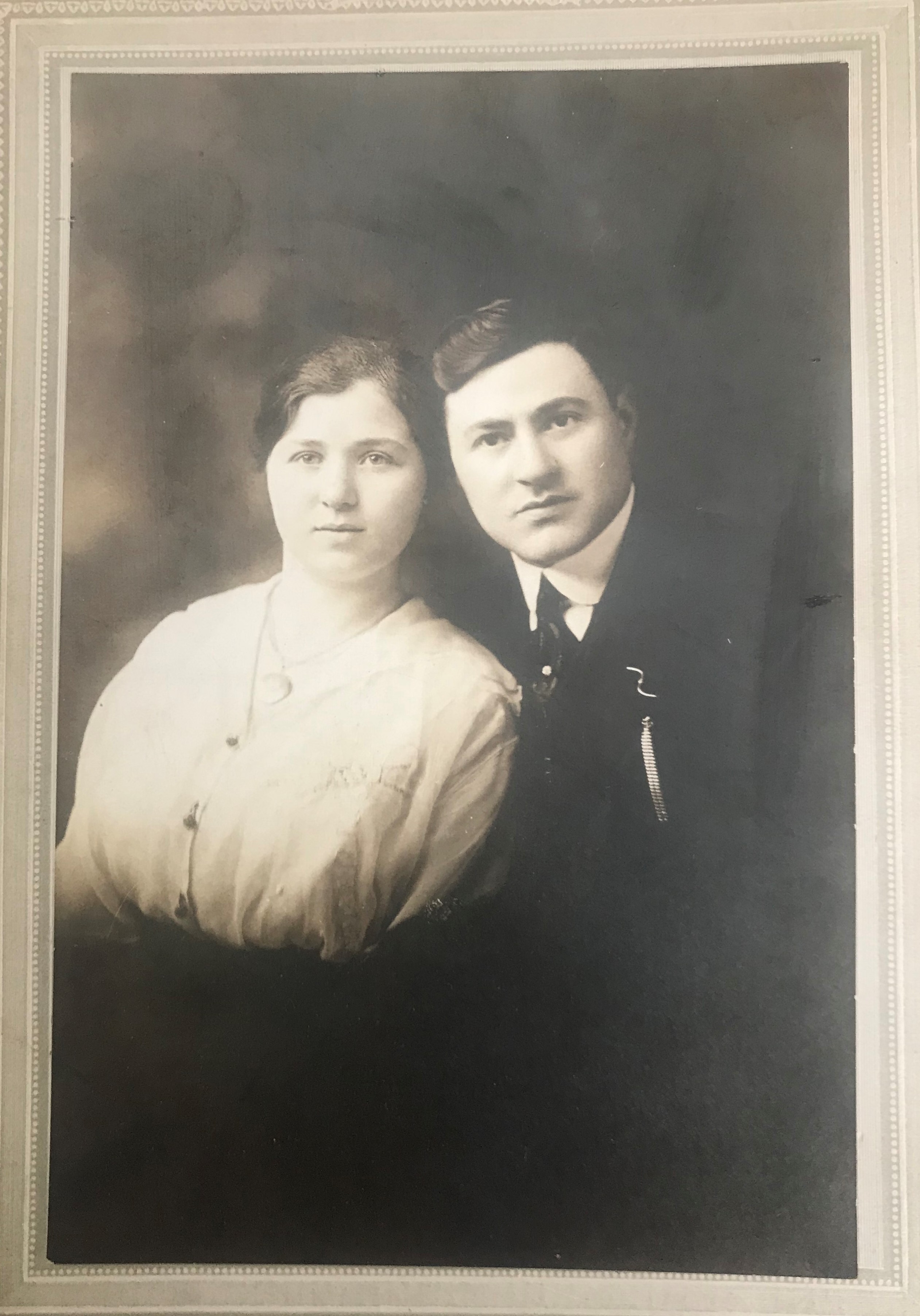Ancestor: Hyman and Jennie Honig
Descendant: Sharon G.
After sailing across the sea in three separate voyages, the twelve souls of the Honig family—my great-grandparents and their ten children—reunited in New York City from the Ottoman Empire. It had taken five years, but the prospect of permanent employment and sated stomachs restored their spirits.
Keeping with their Old World customs, a match was arranged for the oldest son, my grandfather Hyman. The prospective bride was his cousin Emma from Jerusalem. But Hyman lived in the United States of America now. He wanted nothing to do with any of the penniless girls he had left behind who looked boney and fragile compared to the buxom young ladies of America. By the time poor Emma arrived in New York harbor, Hyman had found his Miss America—a sixteen-year-old, tall, blue-eyed beauty named Jennie Sherman. “I walked into the room and she was there and she was beautiful,” he confided once. “She was so healthy looking.” Hyman and Jennie were married on November 8, 1912.
Jennie was working in a skirt factory near her parent’s apartment in Manhattan’s Lower East Side. Her parents, Louis and Beckie, had fled from Russia’s murderous anti-Semitic pogroms in 1893 in a mass exodus to seek refuge and a new life in America.
Unskilled and English-illiterate, Louis found backbreaking work in a tenement sweatshop in New York City’s garment district pressing cloaks with a weighty iron over long hours for sub-standard pay. His last job before his death at sixty-six years old was peddling fruit.
When my grandmother Jennie was nine years old, she was pulled out of school, separated from her parents’ overcrowded home, and sent away to work for a cousin in Boston. Working in a candy shop may sound enticing for a little girl, but the upshot was that Jennie never continued her formal education. She spent the rest of her life illiterate, unable to read books or newspapers or converse intelligently on topics like history or politics.
When Hyman met Jennie, he was determined to achieve the American dream. “America is a place where you can make a living and feed your family,” was a phrase he often cited with allegiance and pride.
Throughout their marriage, Hyman’s idealism was tempered by Jennie’s practical sense, which compensated, to some degree, for her lack of formal education. When it came to street smarts, Grandma definitely had the edge. She was hard-headed about money and kept certain finances away from her soft-hearted husband or he would have given everything away to needy relatives. Never forgetting the ache of poverty and hunger, she was a shrewd and manipulative shopper. When she bargained, merchants would shirk in resignation, “Okay, lady. Just take it and go.”
In the course of just one generation, my grandparents succeeded in building a life that was more secure and prosperous than that of their immigrant parents.
Their story continues to be told by generations of immigrants who have come before and are yet to come. I stand in awe of the brave folks who arrived on these shores with nothing more than a dream, the strength of their backs, and the smarts to survive. The vision my grandparents and great-parents shaped of the American dream is mine, too, to promote and preserve.

